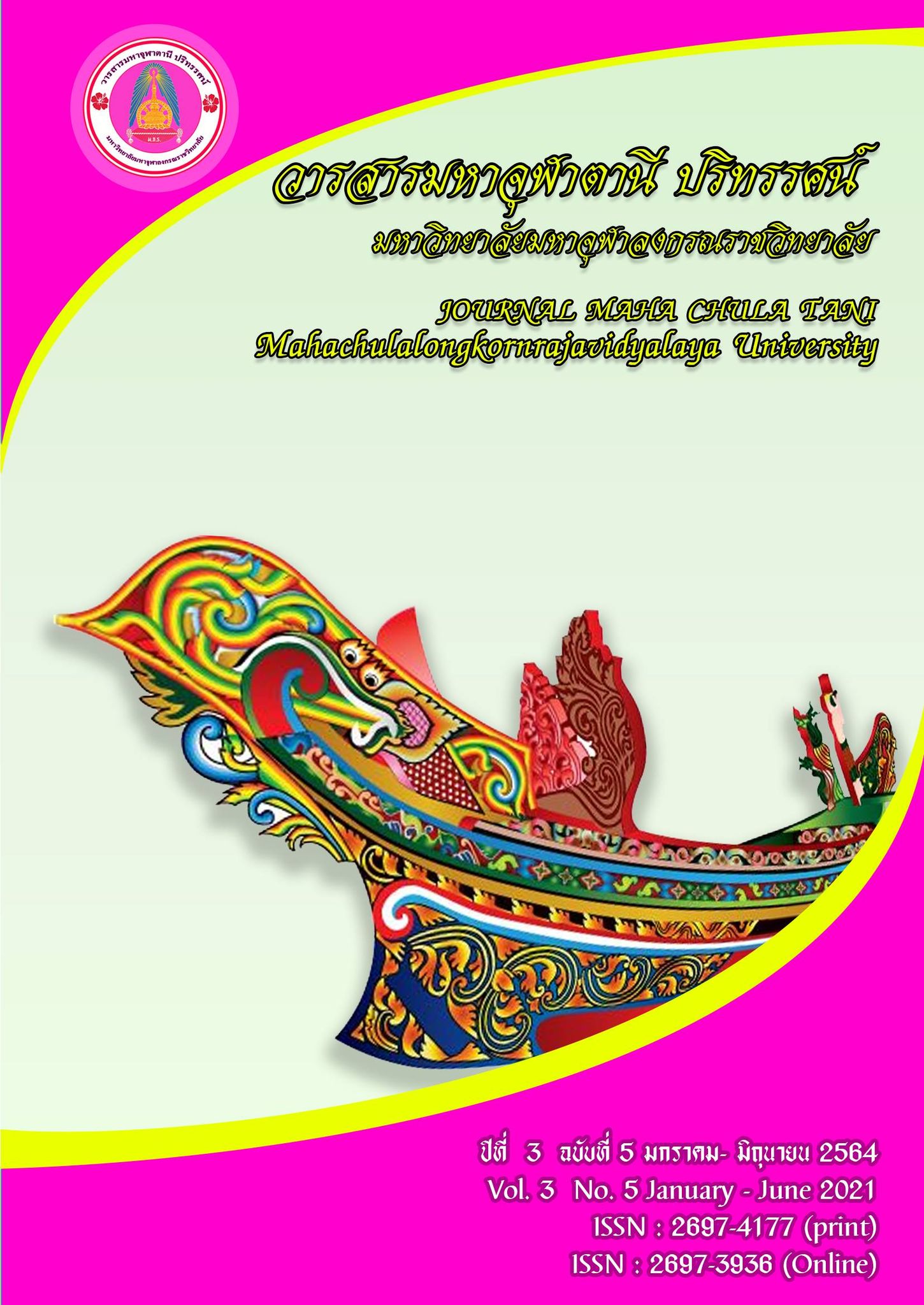A MODEL AND PROMOTION OF FIVE PRECEPTS – OBSERVING FAMILY’S LIVING IN THE NORTHEAST
Main Article Content
Abstract
The three objectives of this research include: 1) To study the Five Precepts in Theravada Buddhism; 2) To study a model and cultural reinforcement of the study the five precepts observation family’s life living in the Northeast. This research is a qualitative focused group discussion, observation and interview among the abbot, school director, community leaders and the Buddhists’ families with 250 targeted people. The result has been found that: The Five Precepts means the regular bodily and verbal observation by abstaining from 5 deeds: 1) all being killing; 2) stealing what is not given; 3) sexual misconduct; 4) false speech; and 5) intoxicants causing heedlessness; whereas there are 5 Dhamma codes that cultivate the five precepts: 1) the Five virtues; 2) the Three Abstinence; 3) forbearance and modesty; 4) mindfulness and clear comprehension; and 5) wisdom. The precept observation is beneficial to both oneself and society while the precept violation is harmful to them.
In the Project of Five Precepts Observation Village: Three sectors organizing the project include: 1) monastery/monk; 2) village/community; and 3) school/other agencies. The objective is to cultivate the Buddhists’ awareness on quality, importance, and duty and the benefits of five precepts observation. Models and activities reinforcing the five precepts observation among families in the Northeast include 3 aspects: 1) donation; 2) Dhamma audience; and 3) meditation practice; whereas the model of living life following the five precepts principle includes 3 codes: 1) faith; 2) true-hearted friends; and 3) wisdom. The objective of the precept observation is to strengthen community and steady living life.
Article Details

This work is licensed under a Creative Commons Attribution-NonCommercial-NoDerivatives 4.0 International License.


